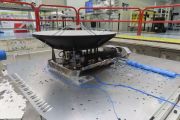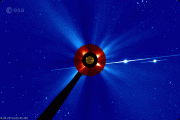
Copernical Team
Maxar awarded Phase 3b of One World Terrain Contract for US Army
 Maxar Technologies (TSX:MAXR) has been awarded Phase 3b of the U.S. Army's One World Terrain (OWT) prototype Other Transaction Agreement contract.
The OWT program delivers 3D global terrain capability and associated information services that support a fully accessible virtual representation of the physical Earth through the Army network. OWT is a key component of the Army's Synthetic Train
Maxar Technologies (TSX:MAXR) has been awarded Phase 3b of the U.S. Army's One World Terrain (OWT) prototype Other Transaction Agreement contract.
The OWT program delivers 3D global terrain capability and associated information services that support a fully accessible virtual representation of the physical Earth through the Army network. OWT is a key component of the Army's Synthetic Train SpaceX Dragon crew blasts off for ISS
 A SpaceX Falcon 9 rocket blasted off on Thursday to the International Space Station carrying two NASA astronauts, a Russian cosmonaut and the second Emirati to voyage to space.
The SpaceX Dragon Crew-6 mission launched at 12:34 am (0534 GMT) Thursday from Launch Complex 39A at NASA's Kennedy Space Center in Florida, a livestream of the launch showed.
The launch had been scrubbed on Monda
A SpaceX Falcon 9 rocket blasted off on Thursday to the International Space Station carrying two NASA astronauts, a Russian cosmonaut and the second Emirati to voyage to space.
The SpaceX Dragon Crew-6 mission launched at 12:34 am (0534 GMT) Thursday from Launch Complex 39A at NASA's Kennedy Space Center in Florida, a livestream of the launch showed.
The launch had been scrubbed on Monda Researchers find asteroid redirection a viable possibility for planetary defense
 Redirecting near-Earth objects like asteroids before they impact the planet is a viable possibility, according to new research published Wednesday.
Conducted last September, NASA's Double Asteroid Redirection Test proved to be more successful than anticipated, according to the research published in the journal Nature.
In October, NASA confirmed the DART mission successfully alter
Redirecting near-Earth objects like asteroids before they impact the planet is a viable possibility, according to new research published Wednesday.
Conducted last September, NASA's Double Asteroid Redirection Test proved to be more successful than anticipated, according to the research published in the journal Nature.
In October, NASA confirmed the DART mission successfully alter SpaceX Dragon crew blasts off for International Space Station
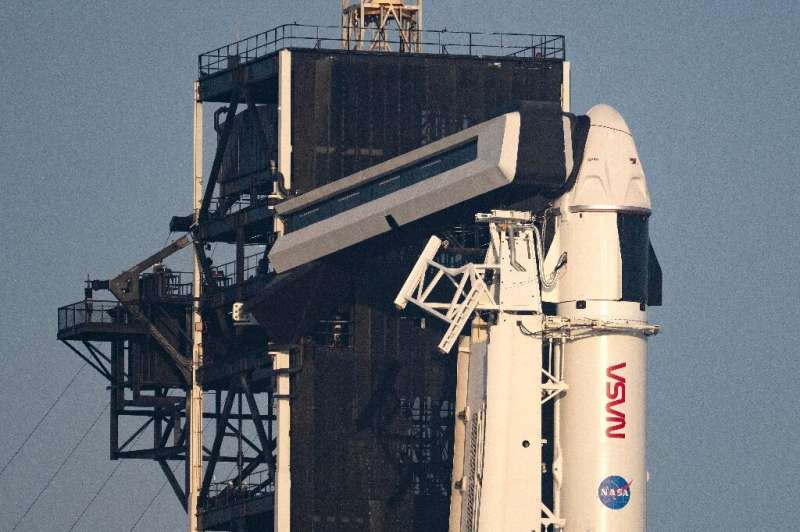
A SpaceX Falcon 9 rocket blasted off on Thursday to the International Space Station carrying two NASA astronauts, a Russian cosmonaut and the second Emirati to voyage to space.
The SpaceX Dragon Crew-6 mission launched at 12:34 am (0534 GMT) Thursday from Launch Complex 39A at NASA's Kennedy Space Center in Florida, a livestream of the launch showed.
The launch had been scrubbed on Monday just minutes before liftoff because of a clog in a filter that supplies ignition fluid to start the rocket engines.
"Congratulations to the NASA and SpaceX teams for another history-making mission to the International Space Station!" NASA Administrator Bill Nelson said in a statement.
Hansel and Gretel's breadcrumb trick inspires robotic exploration system for caves on Mars and beyond
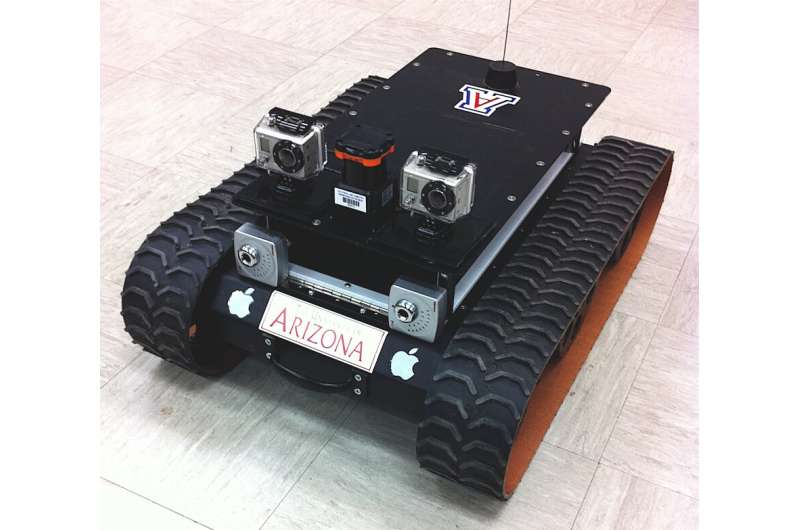
House hunting on Mars could soon become a thing, and researchers at the University of Arizona are already in the business of scouting real estate that future astronauts could use as habitats. Researchers in the UArizona College of Engineering have developed technology that would allow a flock of robots to explore subsurface environments on other worlds.
"Lava tubes and caves would make perfect habitats for astronauts because you don't have to build a structure; you are shielded from harmful cosmic radiation, so all you need to do is make it pretty and cozy," said Wolfgang Fink, an associate professor of electrical and computer engineering at UArizona.
Atom-scale scan of space materials
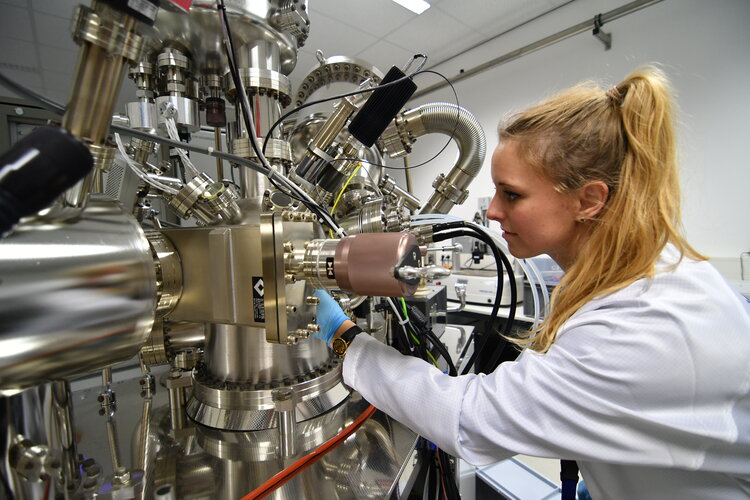 Image:
Atom-scale scan of space materials
Image:
Atom-scale scan of space materials Hubble captures movie of DART asteroid impact debris
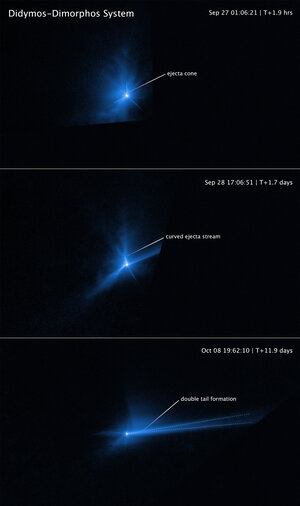
The NASA/ESA Hubble Space Telescope captured a series of photos of rapid changes to the asteroid Dimorphos when it was deliberately hit by a 545-kilogram spacecraft on 26 September 2022. The primary objective of the NASA mission, called DART (Double Asteroid Redirection Test), was to test our ability to alter the asteroid’s trajectory as it orbits its larger companion asteroid, Didymos. Though Dimorphos poses no threat to Earth, data from the mission could help inform researchers how to potentially change an asteroid’s path away from Earth, if ever necessary.
Meet Carole Mundell, new Director of Science
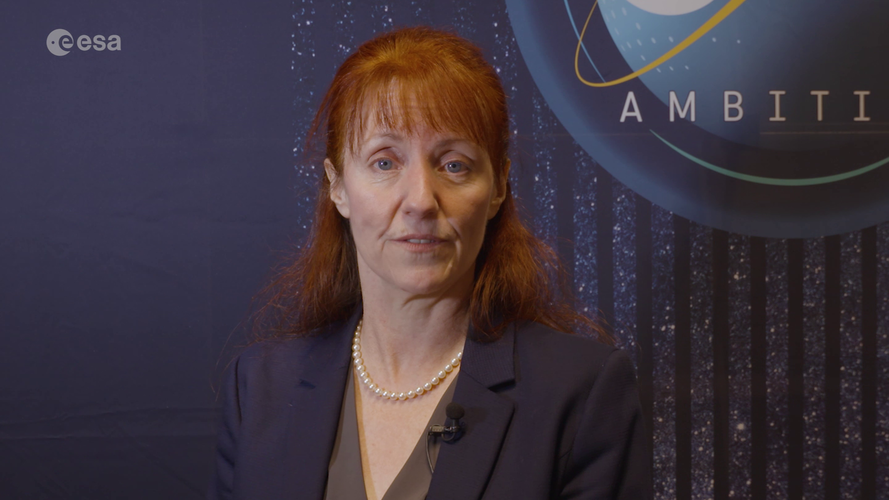 Video:
00:05:10
Video:
00:05:10
Carole Mundell is the new Director of Science, succeeding the current director Günther Hasinger.
Professor Mundell is an internationally renowned scientist with extensive experience in inclusive leadership, operational management, strategy and international science policy development.
She joined ESA from the University of Bath where she held the Hiroko Sherwin Chair in Extragalactic Astronomy, was founding Head of Astrophysics, and served as Head of the Department of Physics until becoming the first woman Chief Scientific Adviser at the UK’s Foreign and Commonwealth Office in 2018 and first Chief International Science Envoy in the Foreign, Commonwealth and Development Office until 2021.
NASA's autonomous aircraft decision tech gets simulated urban test
 Cities are complicated places to fly. Tall buildings, local microclimates, high winds, and other factors present challenges - both known and unpredictable - for current and future air vehicles. But creating new air mobility solutions to move people and cargo will require addressing those challenges. And that's where NASA's Data and Reasoning Fabric (DRF) project can help.
DRF designs techn
Cities are complicated places to fly. Tall buildings, local microclimates, high winds, and other factors present challenges - both known and unpredictable - for current and future air vehicles. But creating new air mobility solutions to move people and cargo will require addressing those challenges. And that's where NASA's Data and Reasoning Fabric (DRF) project can help.
DRF designs techn World View names Ian Thomas as Chief Revenue Officer
 World View, a global leader in stratospheric exploration and flight, has appointmented Ian Thomas as Chief Revenue Officer (CRO). Thomas brings more than 30 years of experience scaling global businesses, including 15 years with The Boeing Company, where he served in a variety of senior leadership roles in the United States (U.S.) and Europe, and then led the company's operations, successively, i
World View, a global leader in stratospheric exploration and flight, has appointmented Ian Thomas as Chief Revenue Officer (CRO). Thomas brings more than 30 years of experience scaling global businesses, including 15 years with The Boeing Company, where he served in a variety of senior leadership roles in the United States (U.S.) and Europe, and then led the company's operations, successively, i 

